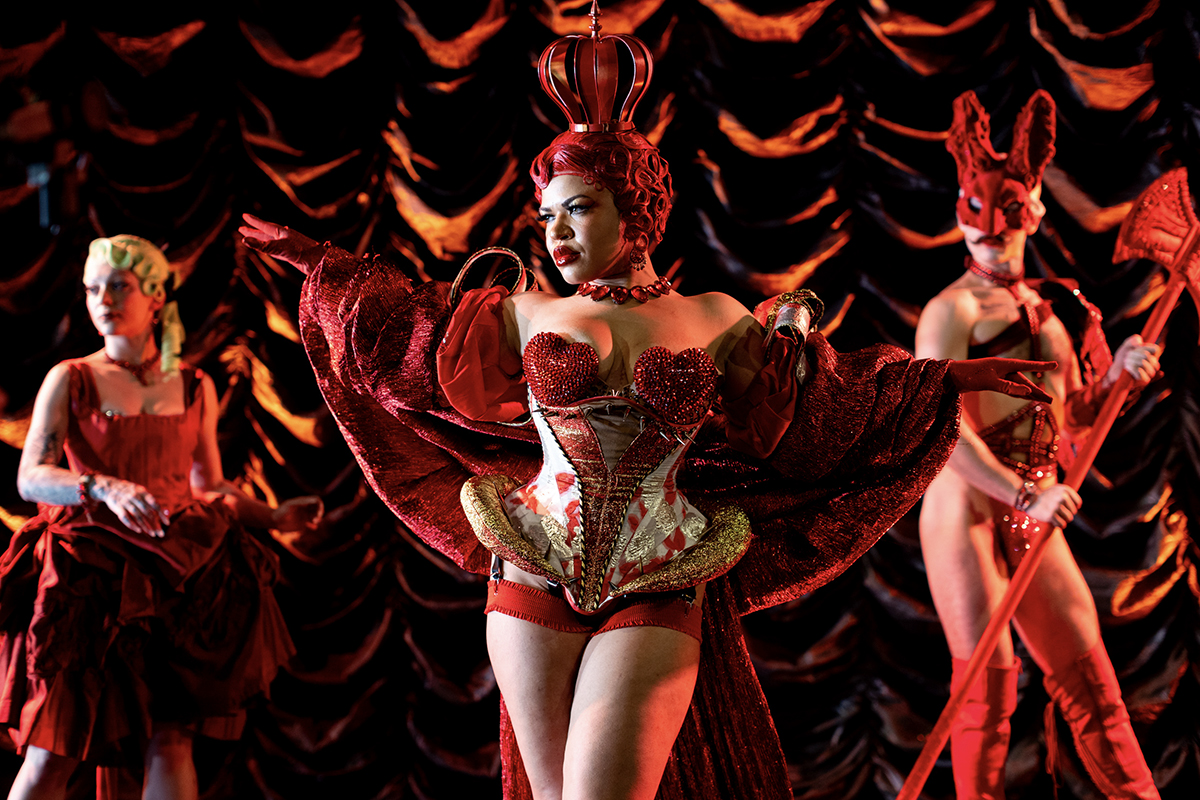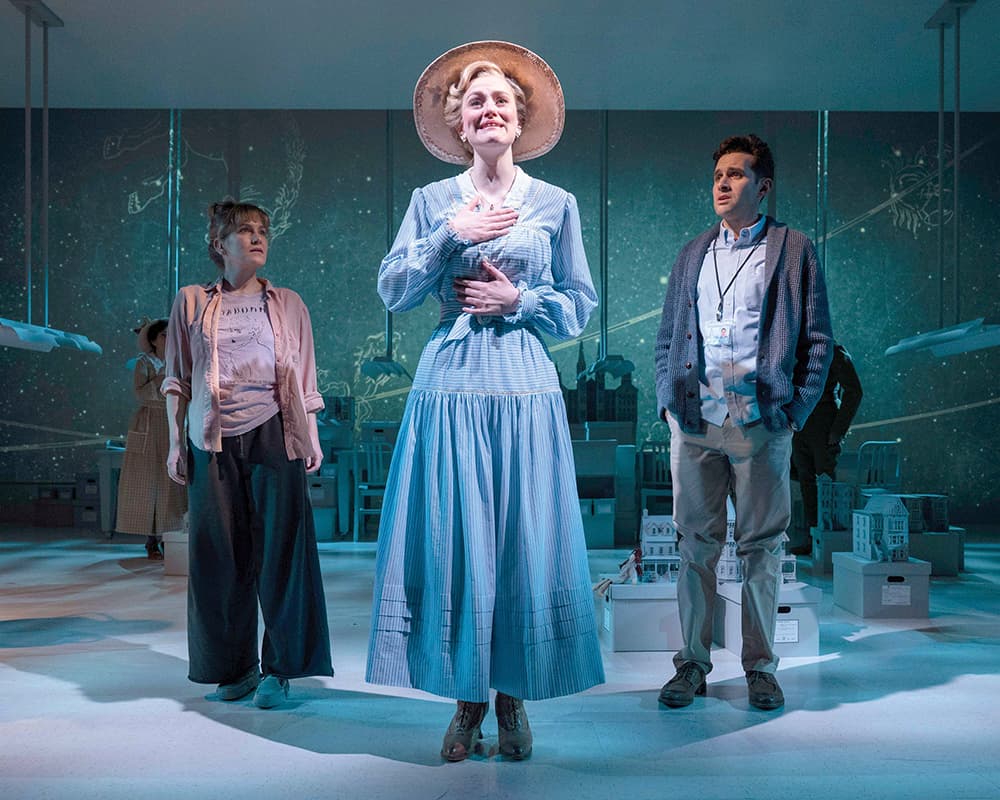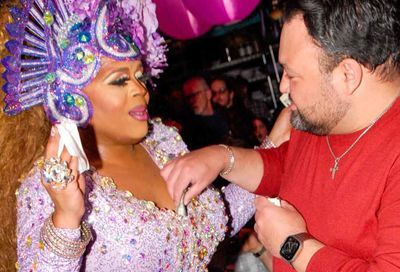Arena’s “A Raisin in the Sun”: Five Stars (Review)
A Raisin in the Sun endures as a timeless jewel, and Arena’s production is a chance to see it truly shine

It’s hard not to feel sorry for today’s playwrights. How can something as patently low-tech as a play be noticed amid the incessant braying of the Internet and its 24/7 all-you-can-eat buffet of excess, news-of-the-weird and non-stop monologuing? With money for the arts scarcer than ever, playwrights may want to write from the heart but, surely, must think about what draws in audiences: the biggest punch, the loudest message, the hottest controversy. The products may be stimulating, they may get a gasp, but all too often, remove the central shocker, and there is little more than fluff.
Against this backdrop, Lorraine Hansberry’s A Raisin in the Sun (★★★★★) is a profound re-calibration. Written mid-century, long before the onslaught of screens and soundbites, it — quite simply — has nothing to prove to a 21st century audience. Just take its premise: a poor, hardworking African-American family comes into some money and struggles with the chance to break free from the demoralizing grind of their urban existence. That’s it. Yes, it is about the legacy of slavery, still fresh in the minds, hearts and economics of 1950s blacks. And yes, it touches mightily on the roles of women and men — be they on the cusp of liberation or trapped by all manner of necessity. But their story is told without gimmick or fanfare.
Despite this, it is riveting, absorbing and extraordinary. Hansberry puts her people first. The struggle is only tangentially about what to do with the windfall. It is only tangentially about race or feminism. It is far more about the struggle within. It is about the way they see themselves, as reflected by society, as reflected by family, as reflected in their own private codes of conduct. This is what fascinates: interesting, believable people questioning their assumptions, their givens. It really doesn’t matter how it all turns out. The joy is in knowing them.
The reason to see Arena’s Raisin is not merely the chance to see a phenomenal play, it is to see it performed with the uncompromising vision of director Tazewell Thompson and an earth-shatteringly superb ensemble. Seamless, authentic, utterly indivisible from the heart and soul of the play, the performances are, quite simply, stellar.
The cornerstone is Lizan Mitchell in the role of family matriarch, Lena Younger. A woman for whom slavery and danger is a recent memory, nothing is taken for granted. She may be larger than life, but that’s the required mantle of a leader, the head of the house, the keeper of a precarious dream. Mitchell captures Lena with extraordinary precision, her faith in the tenets that kept her marriage strong, but also her realization that change is nigh. Of all the players, Mitchell relishes Hansberry’s language most, savoring the cadences, making art with words.
Set in poignant counterpoint is Ruth Younger, Lena’s daughter-in-law. Unlike Lena’s daughter Beneatha, who has been born into freedom and possibility (and the angst that accompanies it), Ruth is chained by a life of poverty. Caught between worlds, she has none of the old-time power of a matriarch like Lena nor any of the opportunities of Beneatha. She dreams not of education, but of a slightly nicer place in which to keep house after a hard day’s work. Dawn Ursula brings an abundance of pathos to Ruth, capturing her powerlessness and her anger at her lot in life and marriage. If she sometimes gilds the lily in striving for an emotional tightrope, Ursula is nevertheless deeply memorable.

Completing the triangle of women is the deeply affecting Joy Jones as Beneatha. This could so easily have been a predictable rendering, but Jones offers a compellingly nuanced young woman. Offering her with a serene, largely unflappable affect, Jones draws us in. As we discover Beneatha’s inner intensity and her evolving philosophy of how to live her life, her unmoving face becomes the subtlest of windows on her emotions. As her beau, the Nigerian Joseph Asagai, Bueka Uwemedimo creates gorgeous chemistry with the uncompromising Beneatha. He is written largely as a figure of hope and something of a speech-giver and in the wrong hands might come across as preachy. But Uwemedimo imbues him with such warmth and color and such believable fondness for Beneatha, he is instead the ideal vehicle through which Hansberry’s ideas can soar.
Finally, carrying a difficult role with intense credibility, Will Cobbs does an outstanding job in describing Walter Lee Younger, son to Lena and husband to Ruth. Walter is not a likeable character and, in many ways, is the most dated. But Cobbs — through the sheer intensity of his portrayal — transcends these limitations. You may not like him, but, thanks to Cobb’s expression of his conflict, you will understand him. In the small role of Bobo, Walter’s erstwhile business partner, Mack Leamon is quietly remarkable. Subtle, understated, but clearly drawn, Leamon’s man speaks volumes.
A Raisin in the Sun is a reminder of why mid-century theater was, in so many ways, a golden era for playwriting. It tells a simply story well, relishing the wit and moral ambiguity of lives lived in cynicism and hope. Hansberry’s work endures as a timeless jewel, and Arena’s production is a chance to see it truly shine.
A Raisin in the Sun runs to May 7 on the Fichandler Stage in the Mead Center for American Theater, 1101 6th St. SW. Tickets are $51 to $66. Call 202-488-3300 or visit arenastage.org.
Support Metro Weekly’s Journalism
These are challenging times for news organizations. And yet it’s crucial we stay active and provide vital resources and information to both our local readers and the world. So won’t you please take a moment and consider supporting Metro Weekly with a membership? For as little as $5 a month, you can help ensure Metro Weekly magazine and MetroWeekly.com remain free, viable resources as we provide the best, most diverse, culturally-resonant LGBTQ coverage in both the D.C. region and around the world. Memberships come with exclusive perks and discounts, your own personal digital delivery of each week’s magazine (and an archive), access to our Member's Lounge when it launches this fall, and exclusive members-only items like Metro Weekly Membership Mugs and Tote Bags! Check out all our membership levels here and please join us today!


























